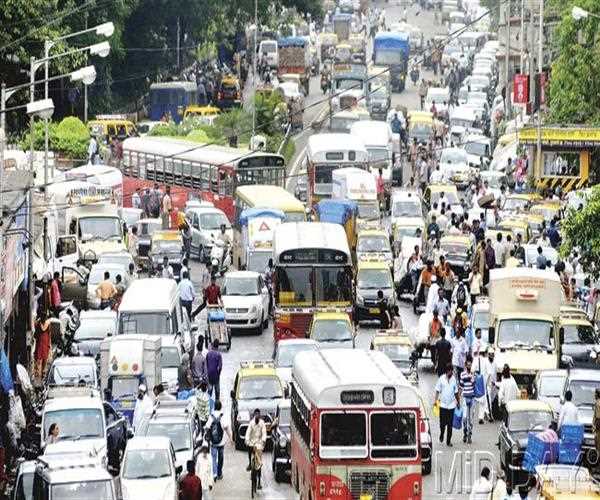
22-Feb-2024 , Updated on 3/4/2024 2:37:55 AM
Traffic mismanagement in smart cities, who is responsible ?
Amid the chaos of city life, heavy traffic mismanagement is often observed in smart cities. The efficiency of a smart city depends upon the technologies and infrastructure, the traffic management in those cities is however quite poor and leads to traffic congestion, accidents, and inconvenience among common people. In this blog, we will look at the reasons of traffic mismanagement in smart cities and who is responsible for that.
1. Poor Traffic Management Systems
The intelligent city traffic management systems have many times not been up to the required task as they are usually an incomplete component that lacks the required necessary infrastructure and resources to monitor and regulate traffic flow effectively. Even though technologies such as CCTV cameras and automated traffic signals are several today, they are often troubled by technical issues, not detected early and insufficiently covered, and therefore there are some gaps in surveillance and enforcement. Besides that, the absence of interaction among different parts of the traffic management system limits its performance, and so it is not functioning properly, causing inefficiency and delay in responding to traffic incidents.
2. No Coordination among the Authorities
Furthermore, another major component contributing to traffic management failure in smart cities is the inappropriate cooperation among various authorities charged with traffic management. The lack of a unified approach and blurred lines of communication within agencies, inevitably result in fragmented efforts and conflicting agendas. This has led to minor problems not being adequately considered, including road congestion and road safety, which have worsened the traffic problem.
3. Lack of Adjustments to New Traffic Patterns
In addition, smart cities are often beset by the need to reorganize themselves after shifting traffic patterns and evolving trends e.g. ride-sharing services and rise in the use of EVs. The modern vehicular management strategies can be found inadequate in accommodating the growing problems which may result in increased congestion and disruption on the roads. Furthermore, smart cities suffer from the fact that they have neither the flexibility and agility to make policy changes nor to install new facilities. Consequently, the problem of traffic mismanagement gets worse as smart cities are unable to keep up with the fast pace of changes in transportation technology and consumer behavior.
4. Political Influence and Selective Consideration
Interference and prioritization of politics also exist and play an important role in aggravating the situations of road mismanagement in smart cities. Traffic management decisions are a lot of times lean towards the direction of politics rather than intuition, data analytics, and public interest. Politicians are more likely to emphasize certain projects related to infrastructure or traffic management, which most benefit their constituencies or themselves, rather than the needs of the whole city. It results in the lopsided distribution of resources and wrongfully assigned priorities, hence the ineffectiveness of traffic management policies and the cycle has to keep repeating with traffic jams and gridlock on the road.
5. Lack of Enforcement by the Traffic Police
Besides the political meddling, no proper traffic policing is also one of the causes of the problem of the uncontrolled mismanagement of traffic. Effective traffic rule enforcement may be strong, but it comes with lapses or inconsistency, thus, allowing violators to operate in impunity. In addition to that, taking bribes and taking advantage of corruption in law enforcement authorities disillusions road safety efforts. Consequently, traffic violations continue undetected, exacerbating congestion, road mishaps, and endangering road safety.
In some cities and towns, the lack of effective traffic management has given rise to the rampant practice of children driving e-rickshaws and other vehicles without valid licenses or training. Despite there being regulations against teenage driving, the lack of rules and regulations put in place to check on such practices only allows it to thrive unbridled. This not only negatively affects the safety of these young drivers but it also creates a significant danger for other road users.
6. Small cities Forgotten
Several small cities and towns suffer from poorly managed traffic which leads to an even more noticeable drop in quality due to underinvestment in traffic management systems and patrols. The lack of resources and infrastructure in the said areas causes a manpower shortage for the police. Poor policing then causes spontaneous chaos along the roads. Furthermore, there are extremely poor traffic management measures that lead to the increase of unsafe driving by children who drive e-rickshaws and other vehicles without a license or training. Even a regulation that prohibits underage driving may have no enforcement and no oversight, allowing this practice to continue unexamined and endangering the public.
Though traffic management systems provide technological solutions, the problem lies in the poor infrastructure, instability among authorities, failure to keep up-to-date with changing traffic patterns, political manipulation, and traffic police’s lack of enforcement. To cope with traffic mismanagements, smart cities need to give priority to the investment in a complete traffic management system, ensure coordination among responsible authorities, including data-driven decision-making, and bring awareness and community engagement. The model of smart cities must always be based on joint work by traffic management systems that are both efficient and sustainable; they should also be capable of improving the standard of living of all people.

Content writer
I am a content writter !
Comments
Join Our Newsletter
Subscribe to our newsletter to receive emails about new views posts, releases and updates.
Copyright 2010 - 2026 MindStick Software Pvt. Ltd. All Rights Reserved Privacy Policy | Terms & Conditions | Cookie Policy